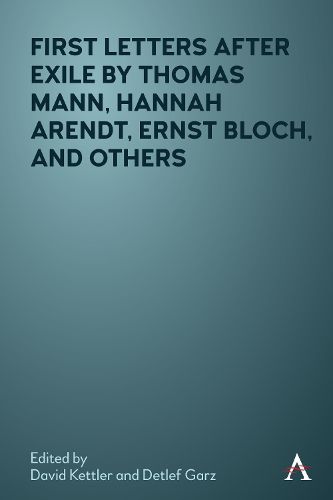Readings Newsletter
Become a Readings Member to make your shopping experience even easier.
Sign in or sign up for free!
You’re not far away from qualifying for FREE standard shipping within Australia
You’ve qualified for FREE standard shipping within Australia
The cart is loading…






In the study of the National Socialist State and its aftermath, two unusual aspects continue to occupy historians and social science commentators. First, a factor important enough to enter into the very definition of totalitarianism is the thoroughgoing mobilization, coercive if needed, of the population of writers, teachers, professors journalists and other intellectual workers, securing cooperation - or at the least passive concurrence - in the mass-inculcation of the population in the destructive Fascist ideology. Second is the central place of dissident members of these populations in the exile. Since webs of communications with others, the majority of whom had remained in Germany, had constituted their own memberships in the populations at issue, the question of their roles in the post-war era depended importantly on the ways and means by which they restored - or refused to restore - communications with those who had remained.
$9.00 standard shipping within Australia
FREE standard shipping within Australia for orders over $100.00
Express & International shipping calculated at checkout
In the study of the National Socialist State and its aftermath, two unusual aspects continue to occupy historians and social science commentators. First, a factor important enough to enter into the very definition of totalitarianism is the thoroughgoing mobilization, coercive if needed, of the population of writers, teachers, professors journalists and other intellectual workers, securing cooperation - or at the least passive concurrence - in the mass-inculcation of the population in the destructive Fascist ideology. Second is the central place of dissident members of these populations in the exile. Since webs of communications with others, the majority of whom had remained in Germany, had constituted their own memberships in the populations at issue, the question of their roles in the post-war era depended importantly on the ways and means by which they restored - or refused to restore - communications with those who had remained.